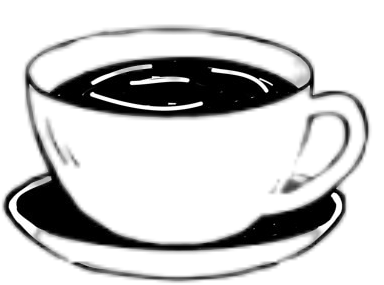
My Experience with "Why Can't Mormons Drink Coffee"
The product "Why Can't Mormons Drink Coffee" immediately piqued my interest—and not just because of its intriguing name. As someone who appreciates learning about different cultures and their traditions, the idea of a product that takes on this specific topic was both curious and insightful. When I first heard about it, I wasn’t entirely sure what to expect. Would it be informative, entertaining, or perhaps a bit of both? I decided to give it a go and see for myself.
What I found was a thoughtful exploration into why members of the Church of Jesus Christ of Latter-day Saints (often called Mormons) abstain from drinking coffee. The product takes a comprehensive approach to explain both the cultural and doctrinal reasons behind this choice, and it does so in a way that feels informative without being preachy. The casual, conversational tone made it easy to absorb the information without feeling overwhelmed by heavy details or dogma. In this article, I want to share a bit more about how "Why Can't Mormons Drink Coffee" provided me with valuable insight and why I think it can be a helpful resource for others too.
Why Can't Mormons Drink Coffee: A Balanced Exploration
One of the main reasons I was drawn to this product is its commitment to a balanced exploration of the subject. Coffee, for many people, is an everyday ritual—a comfort, a source of energy, or a reason to take a break and reconnect. But for Mormons, coffee consumption is more than just a lifestyle choice; it's a matter rooted in their religious beliefs. Understanding this distinction was something I had never thought too deeply about, even though I was aware that coffee and other caffeinated drinks were off-limits to practicing Mormons.
The product provides a clear explanation of the "Word of Wisdom," a health code that Mormons follow, which includes abstaining from coffee, tea, tobacco, and alcohol. Rather than simply stating these rules, "Why Can't Mormons Drink Coffee" delves into the origins of this guideline, helping me understand why it’s such an important part of their faith. It gave context to what I had always considered a quirky, inexplicable rule. I learned that, for Mormons, health isn’t just about physical well-being—it’s closely tied to spiritual health as well.
How "Why Can't Mormons Drink Coffee" Answers Common Questions
Throughout the product, I was pleased to see how it addressed many of the common questions that naturally arise when people hear about this restriction. Questions like, "Is it just coffee, or does it apply to all forms of caffeine?" and "Why is hot chocolate okay, but not coffee?" are tackled in a straightforward manner.
I’ve found that having answers to these questions has helped me have more meaningful conversations with friends who are members of the Mormon Church. Before, I might have danced around the topic out of fear of seeming ignorant or insensitive, but now I feel equipped with a better understanding of why they make these choices. The product didn't just stop at providing information—it gave me the tools to relate to others more deeply.
One particularly insightful aspect was its discussion of how personal interpretation plays a role in the Word of Wisdom. Some Mormons might choose to avoid all forms of caffeine, while others might draw the line at just coffee and tea. This nuance was something I hadn’t considered, and it added layers to my understanding of the faith. The product explains that personal agency is key to following the Word of Wisdom, which is why interpretations can vary from person to person.
Practical Use: Understanding Religious Restrictions Beyond Coffee
Another benefit of "Why Can't Mormons Drink Coffee" is that it extends beyond just the Mormon prohibition on coffee. It made me realize that every culture and religion has similar customs or rules, whether it's dietary restrictions, fasting periods, or even specific rituals related to food and drink. In the same way that understanding kosher laws or halal dietary rules provides insight into Jewish or Muslim traditions, this product provided me with a similar level of cultural appreciation for Mormon practices.
As someone who loves to travel and often interacts with people from different cultural and religious backgrounds, this product helped me see these practices as part of a broader tapestry of human behavior. By understanding the "why" behind such practices, I can approach different traditions with more empathy and respect. It was a reminder that behind every rule or restriction, there is usually a deeply rooted purpose—whether it's health, spirituality, or communal identity.
The Personal Touch: A Conversational Approach
What I appreciated most about "Why Can't Mormons Drink Coffee" was its conversational approach. The creators managed to weave in humor and a lighthearted touch that kept the subject from feeling too heavy. Religious discussions can often be delicate territory, but this product showed that it's possible to discuss such topics without becoming judgmental or overly critical.
It felt like having a conversation with a knowledgeable friend—someone who had done the research but wasn’t there to shove the information down my throat. This tone made it easy to engage with the content, and I found myself genuinely interested in learning more. The product also had moments where it included personal anecdotes from Mormons themselves, describing their experiences navigating the prohibition on coffee in social settings or while traveling. These stories gave me a more human side of the doctrine that I hadn’t considered before.
Why "Why Can't Mormons Drink Coffee" Is Worth Exploring
If you're like me and enjoy learning about other cultures and beliefs, "Why Can't Mormons Drink Coffee" is worth exploring. It’s not just a list of do’s and don’ts—it’s a window into understanding how people live their faith every day. The fact that it made me think about my own habits and question why I do certain things was an unexpected but welcome result.
In a way, the product serves as a reflection tool—not only on the specific question of why Mormons don’t drink coffee but on our own habits and practices that we often take for granted. It prompted me to consider the reasoning behind my morning cup of coffee. Is it simply a habit, or is it something more? And what would it mean to give it up, not for health reasons but as a commitment to a higher purpose?
Practical Scenarios Where This Product Helps
Another aspect I want to highlight is how practical the information provided by "Why Can't Mormons Drink Coffee" can be. For instance, if you’re hosting a dinner party with Mormon guests, understanding why they avoid coffee could help you make better beverage choices. Offering a thoughtful selection of herbal teas, fresh juices, or other alternatives shows a level of consideration that your guests will appreciate.
It’s also practical for educators or anyone in a role that involves discussing world religions. Having a resource that explains things in a clear, relatable way makes the topic accessible to people who may not have any prior knowledge of Mormonism. I found myself wanting to share what I had learned with others, whether it was friends who enjoy trivia or colleagues who, like me, value understanding the diversity of human experience.
Product Review Conclusion
"Why Can't Mormons Drink Coffee" is a product that exceeded my expectations in many ways. It’s more than just a simple explanation of a religious rule—it's a thoughtful exploration of faith, health, and the ways in which personal choices shape our lives. It provides valuable context for a practice that many find puzzling, offering insights without being preachy or overly critical. It’s ideal for anyone who is curious about other cultures or for those who simply want to have better, more informed conversations with friends who are Mormon.
Overall, I found it enlightening, balanced, and genuinely useful. Whether you’re interested in religious studies, cultural practices, or simply want to expand your knowledge, "Why Can't Mormons Drink Coffee" provides a well-rounded perspective that’s easy to engage with.
FAQ Section
Why do Mormons avoid coffee?
Q: Why do Mormons avoid drinking coffee? A: Mormons avoid coffee as part of a religious health code known as the Word of Wisdom, which is a guideline for physical and spiritual well-being. The Word of Wisdom advises against consuming coffee, tea, alcohol, and tobacco as a way to maintain both physical health and spiritual focus.
Is caffeine forbidden in the Mormon Church?
Q: Is caffeine forbidden for Mormons? A: Caffeine itself is not explicitly forbidden in the Mormon Church. The restriction is primarily on coffee and tea. Many Mormons choose to avoid caffeinated sodas or energy drinks, but this varies by personal preference.
Why is tea also prohibited?
Q: Why is tea also prohibited by the Mormon Church? A: Tea, specifically black and green tea, is prohibited under the Word of Wisdom along with coffee. This is because both are considered "hot drinks," a term used in the original revelation given to Joseph Smith. Herbal teas are generally considered acceptable.
Can Mormons drink decaffeinated coffee?
Q: Can Mormons drink decaffeinated coffee? A: No, decaffeinated coffee is still considered coffee and is therefore not permitted. The restriction is not about caffeine content but rather about the beverage itself.
How do Mormons feel about other people drinking coffee?
Q: How do Mormons feel about others drinking coffee? A: Generally, Mormons do not judge or criticize others for drinking coffee. The Word of Wisdom is a personal guideline for members of the faith, and there is no expectation that non-Mormons follow these rules.
